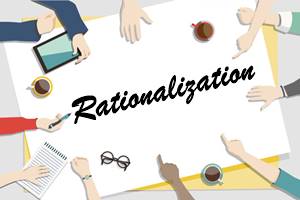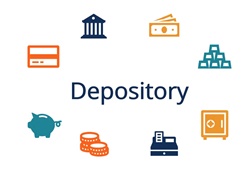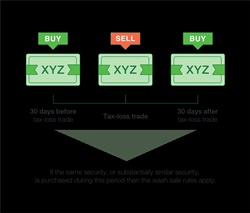
Defining Rationalization
Rationalization meaning can be referred to as the reorganization of some company for increasing the overall operational Efficiency. The given type of reorganization is known to result in the reduction or expansion of the overall size of the company, the change of policy, or the overall alteration of strategy with respect to specific products that are being offered.

Quite similar to the concept of reorganization, rationalization tends to be more widespread. It encompasses strategy changes along with structural changes as well. Rationalization turns out to be essential for the organization when it comes to increasing the overall revenue, decreasing costs, and improving the overall bottom line.
Rationalization, in some cases, is also known to refer to the task of becoming measurable. For instance, the introduction of specific financial technologies or models helps in rationalizing the Market while making them highly efficient. The introduction of the model of Black-Scholes for options pricing –for example, had helped in rationalizing the existing options markets during the late 1970s in Chicago.
Working of the Different Instances of Rationalization
Some of the instances of rationalization are:
Production Rationalization
It serves to be a vital aspect of managing the entire lifecycle of the product. In case the products are not rationalized, the overall numbers continue increasing, including complexity, and increasing support costs to the bottom line of the company. As per the 80/20 rule, the bulk of the revenue of the company as well as its profit is known to come from the fraction of the products. This is why when you opt for rationalizing a specific product line, it is required to take into consideration several factors.
Talk to our investment specialist
The Portfolio effect helps in describing how the removal or addition of the product would affect the remaining products of the company. Sales might advance to other products or get lost completely. While rationalization might help in reducing complexity in the given supply chain along with redundancy in both the support as well as portfolio costs, the overall costs can be immensely difficult to quantify.
The portion of sales that is not capable of transferring to other products is required to be estimated as well as compensated by a series of new products that enter the portfolio. Additionally, when the products will be leaving the portfolio, typically fixed costs are known to remain the same. The overall costs should be spread across the entire product line. This leads to the overall increase of the unit costs.
Production volume is expected to be transferred to new products that are profitable for ensuring the fact businesses remain solvent. Moreover, customer migration is an important issue as operations and sales managers are expected to create as well as carry out the respective migration plans. This turns out to be particularly vital with customers who are purchasing multiple products who would leave the company that would no longer be providing single shopping.
All efforts have been made to ensure the information provided here is accurate. However, no guarantees are made regarding correctness of data. Please verify with scheme information document before making any investment.












